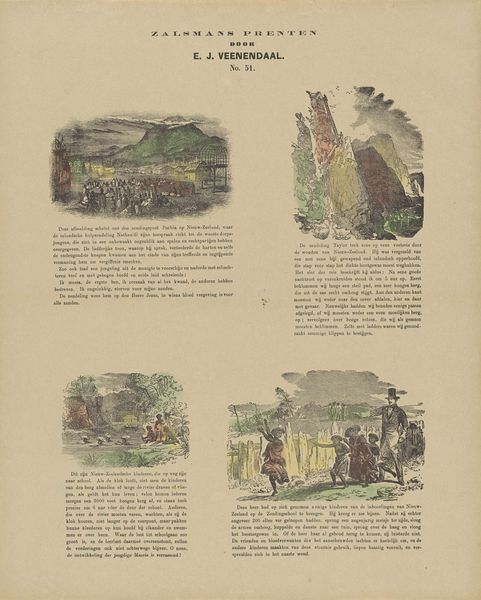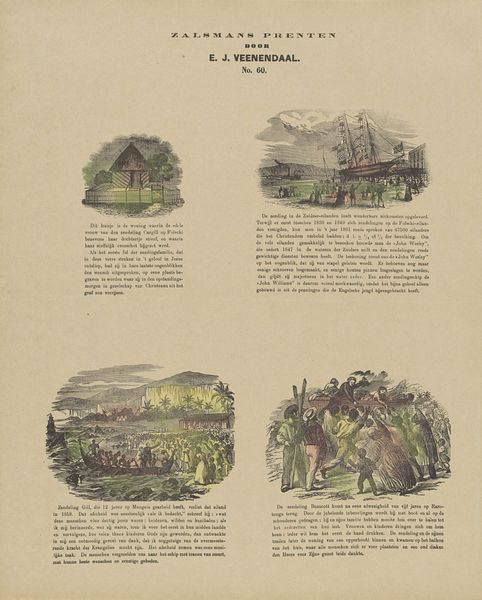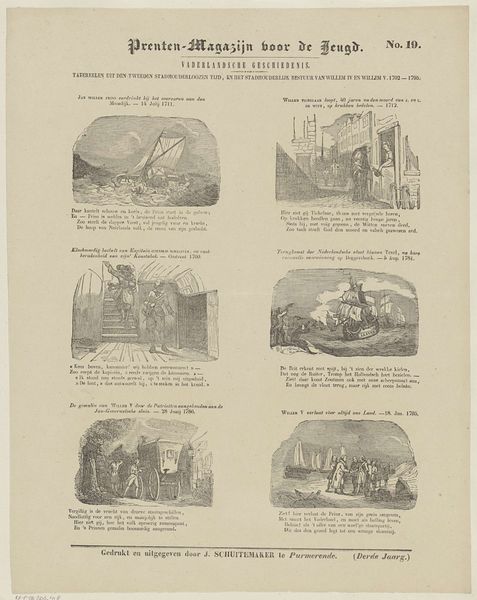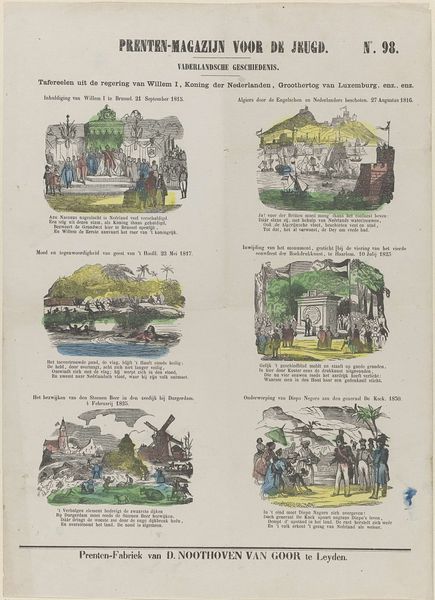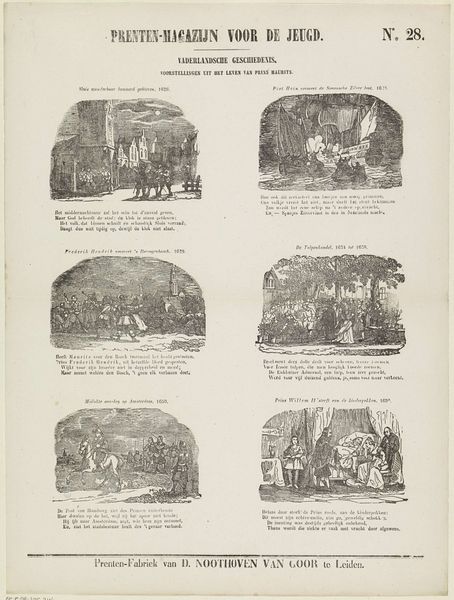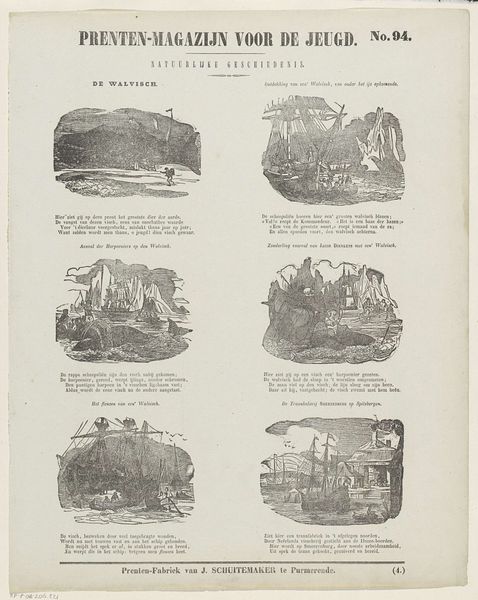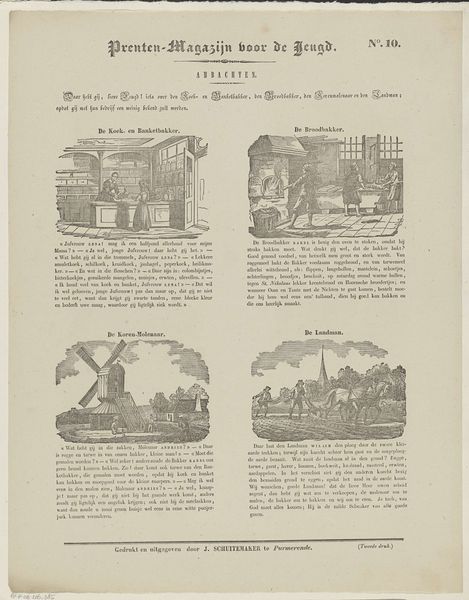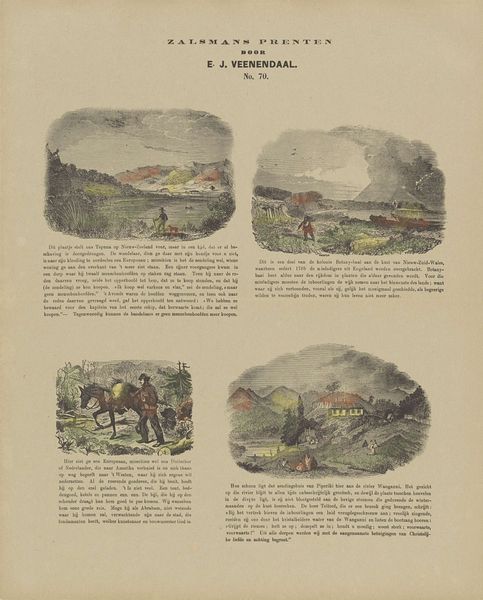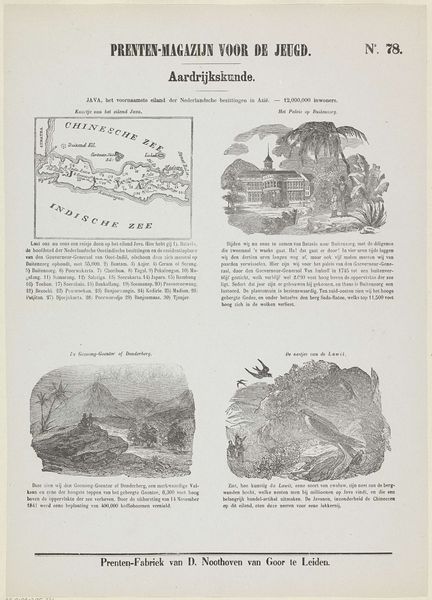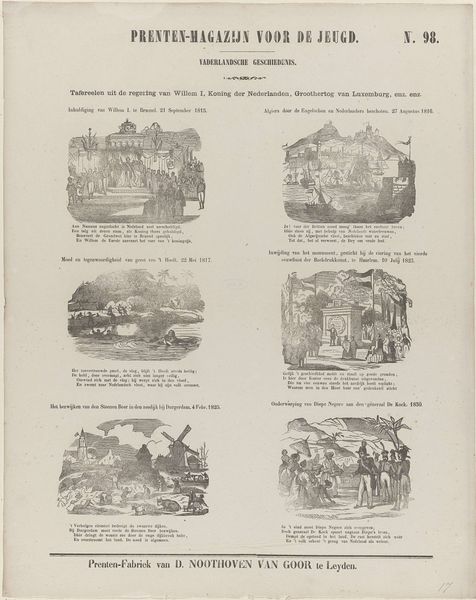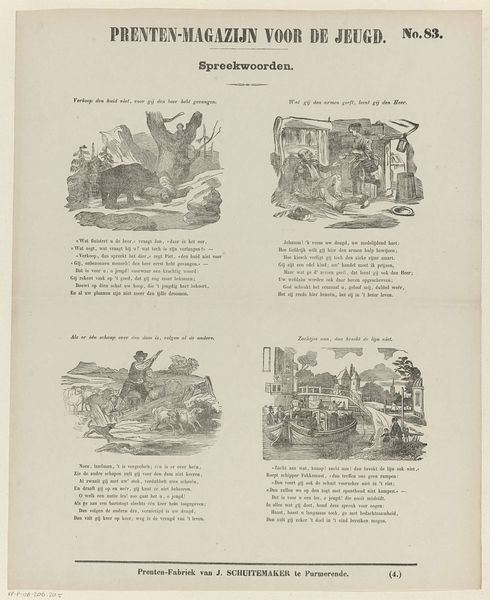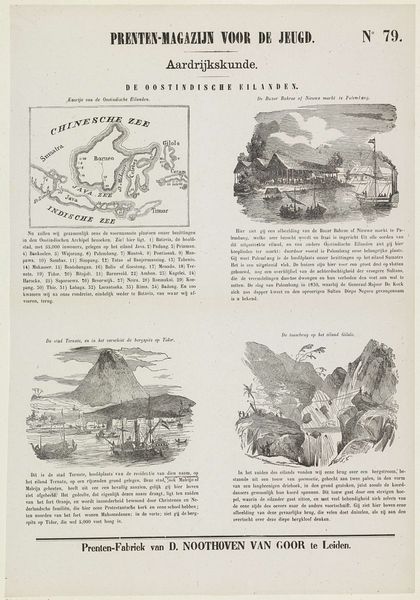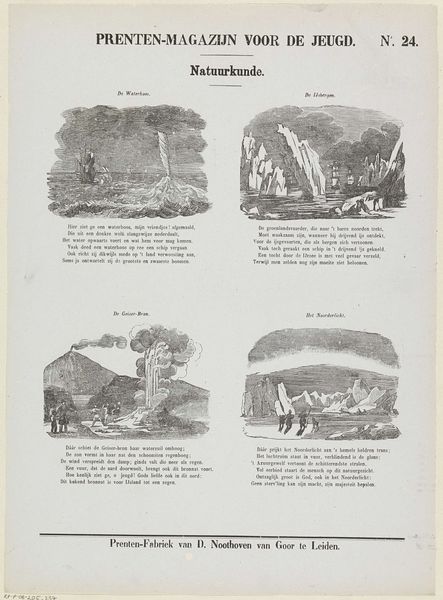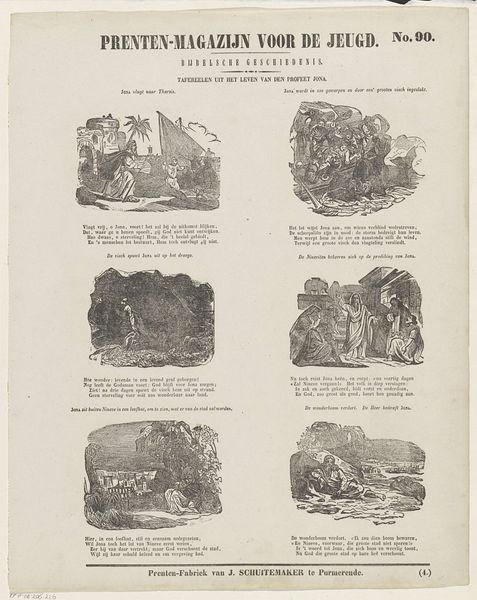
Oorspronkelijke inwoners van Vanuatu, hier aangeduid als de Nieuwe Hebriden 1869 - 1882
0:00
0:00
print, oil-paint, engraving
#
portrait
# print
#
oil-paint
#
landscape
#
orientalism
#
history-painting
#
engraving
#
realism
Dimensions: height 427 mm, width 344 mm
Copyright: Rijks Museum: Open Domain
Gerhardus Philippus Zalsman made this print of Vanuatu natives using lithography, a printing process, sometime before his death in 1910. It depicts scenes and customs from the island, likely based on the accounts of explorers or missionaries. The image creates meaning through a combination of visual codes and cultural references, reflecting the perspective of the colonizer. Notice how the scenes include depictions of native rituals alongside images of European settlements and missionaries. This juxtaposition subtly reinforces a narrative of civilization versus savagery, a common trope in colonial-era imagery. The composition emphasizes the exoticism of the island, while also suggesting the civilizing influence of European presence. Understanding this print requires historical contextualization. The print reflects the mindset of the Dutch colonial period, a time of exploration, trade, and, of course, exploitation. We can explore archival materials, missionary records, and travelogues to further enrich our understanding of the complex interactions between colonizers and indigenous populations during this period. By understanding the institutions and power structures at play, we are better able to see this artwork as a product of its time.
Comments
No comments
Be the first to comment and join the conversation on the ultimate creative platform.
